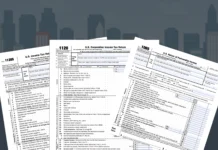Ready to embark on the exciting journey of buying a car? It’s an investment in your future, so don’t let yourself get taken for a ride! With the right knowledge and information, it doesn’t have to be stressful. Read on to get all the best tips and tricks on how to buy a car without overpaying:
Researching the Car Market

Researching the car market is an important step when buying a car that will help make sure you don’t overpay. The car market fluctuates often and it’s important to have a good understanding of current prices and trends in order to get the best deal.
Start researching by looking into different makes and models of cars, both new and used. Make sure you think about how many seats, features, size, fuel efficiency, and other considerations you would like in a car. Make sure to know what you are interested in, are you looking for a sports car like Subaru BRZ, or are you looking for maybe an SUV. Check out different vehicle ratings to see how each model stacks up for reliability, safety ratings, ride comfort and value over time. Knowing which models receive high marks from experts can help narrow down the vehicles that will suit your needs best.
Once you’ve narrowed your search down to a few cars, review their prices to establish an accurate market price for each model. Look up local dealerships in your area – sometimes you may find better prices by going slightly farther away from home for the same exact car. Be sure to check online classified ads as well – these become more populated as the year goes on because more people are willing to sell their vehicles during this time period. Do your research first so that when it comes time to negotiate with sellers your bargaining position is strong!
Arranging Financing
When preparing to buy a car, one of the most important aspects is arranging financing. If you’re financing through a dealership, it can be difficult to know if you’re getting the best deal or being taken advantage of. To avoid overpaying and make sure you’re dealing with a reputable lender, consider the following tips:
- Research lenders: Look for well-reviewed companies with competitive rates, and compare interest rates and terms.
- Consider options: Think about whether buying from a dealership is your best bet or if securing an independent loan might be better.
- Shop around: Talk to multiple lenders before making a final decision – even at the dealership – as not all car loans are created equally.
- Know your credit score: Check your credit score before you apply for an auto loan as this will give you insight into what kinds of offers are available to you.
- Consider down payments and trade-ins: Be aware that down payments (cash or trade in) can affect loan terms and interest rates so deciding how much money to put down is important when budgeting for car expenses.
- Read contracts carefully: Understand the terms of your agreement, including any fees that may accompany it, and make sure all the details are laid out clearly in writing in order to avoid overcharging or other problems further down the road.
Negotiating the Price

When you have chosen the auto and worked out the numbers in terms of financing, it’s time to start negotiating with the salesperson. The more prepared and knowledgeable you are, the more likely you are to get the best deal. Here are some tips to help you negotiate an unbeatable price on your next purchase:
- Research like-new cars of the same make and model. Knowing your car’s market value will allow you to negotiate better.
- Remember that negotiation is a game – there will be a “back and forth” between parties involved. Your goal is to get the best deal possible without compromising quality or service.
- Show up with cash – dealers can often accommodate buyers who come in with cash by offering additional discounts or incentives like lower interest rates or pre-paid maintenance plans on your purchase.
- Negotiate components separately – don’t assume they must all be part of one deal; items such as extended warranties, servicing agreements and any additional add-ons should be negotiated separately so that each item stands on its own merits.
- Be aware of the trade-in value – even if you’re not trading in a vehicle right away, ask for an offer so that when you do decide to trade it in, you already have an idea of what price may be offered by that particular dealership.
- Above all else, stay calm – while negotiations can become heated at times, maintain a level head throughout dealings with your salesperson; getting angry could lead them to back off from giving concessions or lowering their original offer.
Closing the Deal

At this point you should have narrowed your choices down to one or two vehicles. Now it’s time to tie up the loose ends and get a good deal. Negotiating correctly is essential in getting the auto of your dreams at a price you feel good about.
Your first move when negotiating should be to itemize each of the components of the transaction – including options, service contracts, warranties, taxes, titling fees, registration fees and GAP insurance (in case your vehicle is stolen). When all these items are truly understood by both buyer and seller, you can then begin negotiations for a better deal. Remember that agents will try to pressure you into making a decision on the spot so if you don’t already have financing arranged outside of their dealership it may be beneficial for you to delay making your purchase decision until a later date.
Do not accept beat-ups such as unreasonable trade-in value offers or other “hidden” cost add-ons that weren’t discussed earlier in the car-buying process. After verifying final details such as finance terms with your lending/leasing institution prior to signing any documents – specifically check whether there are any hidden costs or other undisclosed information in any contracts presented – fully review all documents once more before submitting them for signature. Once everything is finalized – you’ve got yourself a great deal and are now ready to drive away in style!









